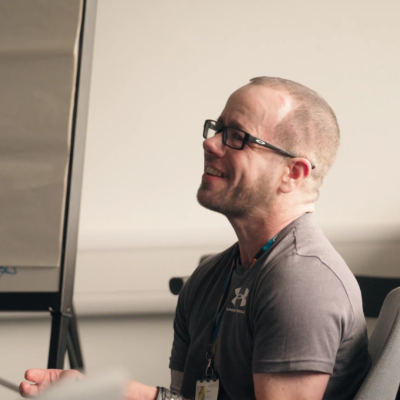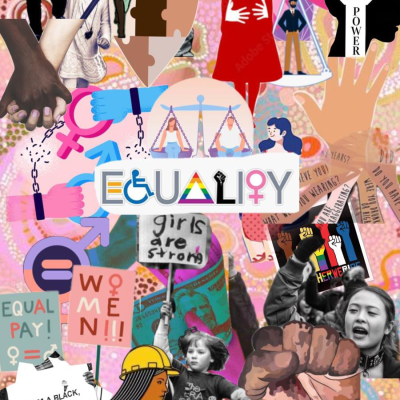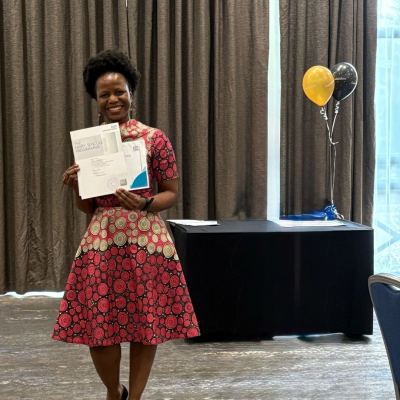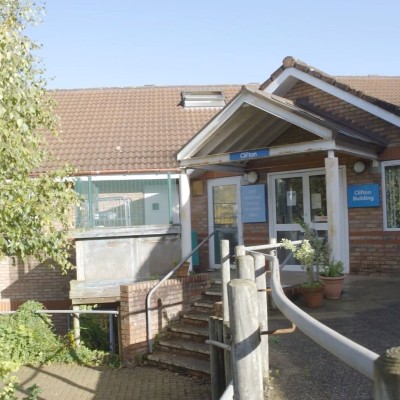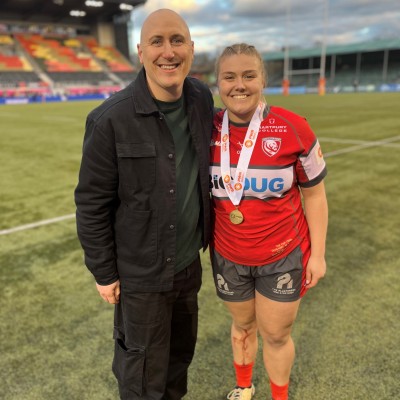Publish date: 20 June 2024
Accepting people who have difference in our community is one of the most important things, and it's important to me because as a child I lived with my grandparents and my uncle Stephen, who was a gentleman with learning disabilities, he had Down’s Syndrome.
Uncle Stephen was the 7th of seven children. My grandparents had him during the Second World War, and at that time when a baby was born with Down’s Syndrome they were taken from their parents and put in an institution, into a hospital. So sadly, my grandparents had the heartache of coming home without their baby.
One day they decided they would visit Stephen, but on this occasion didn’t want to leave without their little boy, so they took Stephen and brought him home. In that day and age, bringing your children home from the ‘institution’ was quite unusual. But there they were on their hour and a half journey home, grandad on his motorbike with my grandmother in the side car with little Steven.
For Stephen, growing up at home meant he had a lot more freedom, he was able to work out what he enjoyed in life, he loved music, and he used to listen to it all the time. He also used to conduct music and would share this with us, we got the full arm movement, full body movement as he was conducting.
They lived in a community that had allotments, so Stephen was outside all the time and became part of the community, chatting while digging and having cups of tea out of and old urn in their little potting sheds. Spending time at the allotments with my grandfather, would have been unknown at the time but would have supported his wellbeing immensely and provided Stephen an opportunity to socialise.
But the most important thing was that he was a member of the community. He was very well known. He was known in the Green Grocer Store that my grandparents owned, he would fetch and carry, wrap things up, put them in baskets, he wasn't hidden away, which would have been his life if he'd stayed in the hospital that he was at.
My grandfather was a formal man, as were many men of that era. He was not only formal with the way he looked, with smart shirts, braces and shiny shoes, but the structured way of life - breakfast, lunch, tea was at the same time each day. Good habits and routines were formed in terms of cleanliness and looking after yourself, all providing consistency and stability for Stephen. Stephen had such a brilliant and fulfilled life with my grandparents, he was given freedom, independence and stability.
Sadly my grandparents passed away which meant that Stephen was moved into registered adult care home for adults with learning disabilities. His life with my grandparents gave him a brilliant grounding and the network that supported him in his transition into a care home supported him to settle well. His time in the care home was great, it was the first time he was in a place with people that were like him, Stephen grew hair long, he wore jeans, T-shirt and trainers and became great friends with the resident St Bernard dog. Stephen stayed in the care home for many years before he passed away.
As a family we are forever grateful for the joy that Stephen bought to us throughout his life. I absolutely know that he had the best life and his life would have been very, very different if he'd been left to stay in that hospital.
So that's my story about learning disabilities and autism, and that's what I'd like to share as to why it's so important, we keep remembering.


